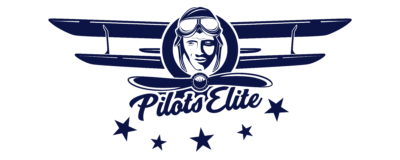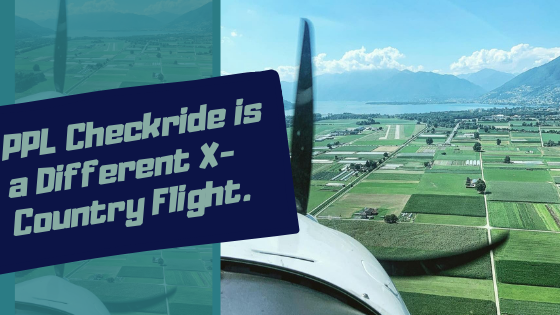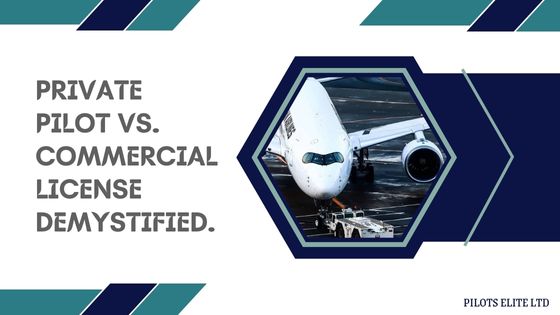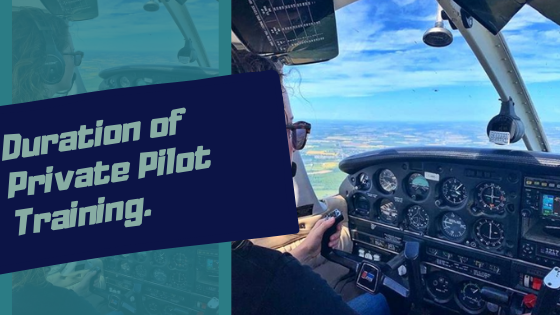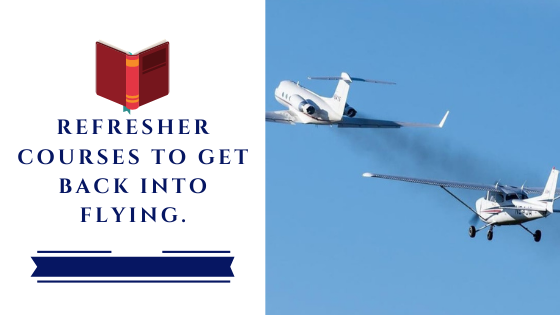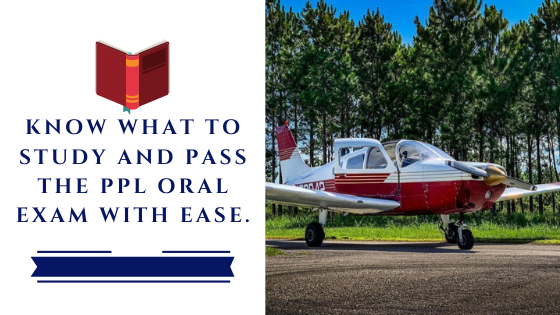PPL checkride pass rate: Eradicate fear of failing your checkride.
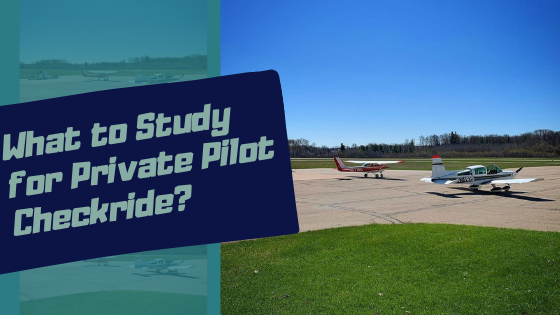
At the flight school, you’re debriefing your last flights. You built adequate flying hours and were well-experienced to get your private pilot license.
You performed very well during your previous flight, and your instructor finally endorsed you for a checkride.
Your flying skills are acceptable, yet your flight instructor is confident you can pass your checkride.
The flight instructor thinks it’s time to schedule a flight with a Designated Pilot Examiner (DPE) as soon as possible.
In your mind, you’re confused and fear you may fail the checkride. You ask yourself why your flight instructor decide to endorse you.
You return home with confusion.
At your desk, you go online on Facebook and subscribe to some pilot groups.
You question around to know about the PPL checkride pass rate. You wonder the probability of a student pilot passing the checkride is and how to overcome the fear of checkride.
What is the private pilot license (PPL) checkride pass rate?
The PPL checkride pass rate has dropped from 80% to 75% in the last decade. A pass rate of 75% is still a significant number of students that pass the checkride. Hundreds of student pilots take a checkride every month for a private pilot license in the United States, and only a few can’t pass the checkride.
The answer you got after researching online calms your nerves a little bit.
You return to the flight school the next day.
You meet other fellow pilots and ask them the same questions regarding the PPL checkride pass rate.
Some say the checkride is very straightforward, and others take checkride as a challenge. It builds up the tension again.
However, one of the pilots tells you that if you prepare well for the checkride, the private pilot checkride is as easy as pie.
The checkride is nothing but another regular cross-country flight where you are the Pilot in Command (PIC).
Similarly, instead of having a flight instructor sitting next to you, there is an examiner to assess your entire flight.
It’s not as complicated as many student pilots think it is.
The DPE is there not to fail you but to assess your flight.
The only reason behind your discomfort about a checkride is you’re not used to flying with a DPE.
However, a checkride is much less complicated than flying with your flight instructor. Imagine what happens during a typical flight with your flight instructor.
On a sunny day, you’re ready for a cross-country flight, and your flight instructor is there to judge you and give you lessons on your every move.
On the contrary, during your practical checkride, you’re the PIC, and the DPE won’t judge you until you finish the flight or if you decide to land your plane on a grass field in the middle of nowhere.
So why do you have so much uncertainty about passing the checkride?
You have many questions and want clear answers before you schedule your checkride. Your doubts are slowly building up.
You think about the worst-case scenario. What if you fail your checkride?
Understand that failing your checkride doesn’t impact your profession as a pilot in the future.
You are in the general aviation area at your flight school.
You come across a charter pilot. He is standing next to a private jet. He is occupied discussing some things with the flight mechanics there about the aircraft.
While passing by, you greet him. He replies to you with a smile.
With some courage, you approach the pilot in uniform and talk to him about various things about being a professional pilot.
He tells you about how long it took him to be a pilot and how much he enjoys every moment of flying. Surprisingly he tells you that he failed his first private pilot checkride, yet he found a commercial pilot job.
Now he is working to build enough experience to be in a major airline.
You ask him: “So, did failing your checkride affect your profession?”
To your surprise, he answered, “No”.
You feel surprised and a bit relieved.
Though there are no consequences for failing a checkride, you fret over the consequences of not passing your checkride.
You curiously asked him: “What did you do when you didn’t pass his checkride?”
Being an optimistic person, the private jet pilot answers: “I took it as an opportunity to learn more and prepare much better for the next checkride.”
Also, he blames himself for not scheduling a checkride as early as possible. He thinks his uncertainty about taking the checkride delayed his entire process.
He was not quick to schedule a checkride. After his last flight, it took months for him to decide to schedule a checkride.
The DPE was not available, and by the time the DPE was available for the checkride, the student pilot was a bit rusty.
What is the consequence of being rusty? His entire checkride was substandard.
As it was getting late, the private jet pilot decided to leave, but you were enjoying the conversation.
Regardless you said goodbye and left for home.
On your way home, you think about your enlightening conversation with the commercial pilot.
Therefore, you realize that delaying a checkride after you receive your endorsement is not wise.
Requesting flight school to schedule a checkride.
The next morning you wake up with enthusiasm to go to the flight school.
You finish your coffee and go to the airport to talk to your flight instructor about scheduling a checkride.
But your flight instructor took a few minutes before with another student pilot. He wouldn’t be back from his flight for another three hours.
So you wait for your flight instructor while researching more about a private pilot checkride online.
You familiarise yourself with the things that go on during a checkride.
You learn something new: Each area or flight school has one DPE.
Thus your flight instructor has an impeccable idea of what kind of questions a DPE may ask.
Your flight instructor is familiar with the airport a DPE prefers to fly to, the questions he asks, and the maneuvers he wants to examine during a checkride.
You feel restless now talking to your flight instructor. Why isn’t he back yet from the flight?
You learn that, typically, each DPE has its way of examining a checkride. They ask the student pilots to do the same tasks and then similar schemes, if not the same.
You must ask your flight instructor about all the details of flight schools DPE:
- What does the check pilot prefer, electronic charts or paper charts?
- There must be an emergency procedure that a particular DPE often wants student pilots to demonstrate.
- Does the DPE wish to know about the aircraft logs?
Anticipating matters about the checkride can significantly increase your chance of passing your PPL checkride.
The days of memorizing are long gone. It’s time to be smart. Today you understand the fundamentals and learn about your DPE beforehand to become proficient pilots and pass the PPL checkride.
Finally, the long hours of waiting are over. Your fight instructor shows up and greets you with a smile.
You approach him and discuss scheduling your checkride. He gives you some advice to build your confidence.
He says: “A bright, skilled pilot can answer any question about any situation.”
“If your DPE notices that you memorized the questions, there is a chance he will dig in further to check your knowledge on the topic.”
If this happens, there is a likelihood that you will fail the checkride. Therefore, prepare well and go for your checkride with confidence.
Lastly, he tells you that you have been asking around the wrong question: “What is the PPL checkride pass rate?”
Instead, you should ask how to prepare for the private pilot checkride. To build confidence, you need to be knowledgeable. To answer correctly, you must study adequately and practice for the checkride.
Don’t just memorize but understand every detail of the subjects. Have confidence in yourself to perform better on your checkride.
Nothing to fear if you have already studied adequately and prepared using the books I mentioned.
After listening to this, you decide to take your checkride within the fortnight.
In between this fortnight, you’ll study and prepare for your checkride not to give your DPE any chance to stop you from passing your checkride.
You’ve finally overcome your fear of checkride and are determined to study adequately.
You have overcome your fear and are determined to study.
It’s evening, and you’re at your home. You prepare your coffee and sit at your desk.
You check on your calendar the schedule for your checkride. You still have two weeks to go.
Plenty of time to prepare for the checkride and build your confidence.
You know, with education and intellect, you can pass your PPL checkride. You’re confident because if 75% of the students can pass their checkride on their first attempt, you can do the same.
Do you anticipate what are the questions the DPE can possibly ask?
You’ve acquired knowledge on the subjects for a private pilot license. You’ve sufficient flight experience, more than the required 40 hours by the FAA.
Yet, you’re in a dilemma because you don’t know where to begin your studying.
Studying to pass the PPL checkride has started long before today. Everything you learned during your private pilot training was to prepare for your big day “the Checkride”.
The checkride is the final exam. You need a syllabus for your final exam.
Follow this article to know more on how to prepare for your big day: How to prepare for the private pilot checkride?
RESOURCES:
